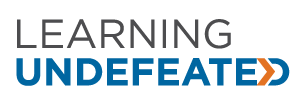from Technical.ly Baltimore | read it >
Shipping containers are continuing to prove their worth outside of transportation. From serving as a community-connecting space to an urban farm, one organization is now bringing them into education as mobile laboratories.
The 22-foot-long, 8-foot-wide Drop Anywhere Labs are the latest innovation from Maryland education nonprofit Learning Undefeated, formerly MdBio Foundation.
The shipping containers are driven to schools via tractor trailer, then spend the day in the school’s parking lot. Classes spend 15-20 minutes inside the container, and can continue the activity in their classrooms with the lab’s activity carts.
Inside, the labs fit 10-12 middle and high school students at a time, where they can learn about anything STEM-related, from career pathways to science, health, engineering and construction. The labs even have a piece of wall that peels off so students can learn about circuits and electricity. To build the labs, over $2.45 million was contributed by AstraZeneca, the states of Maryland and Texas, the Rebuild Texas Fund, the Qatar Harvey Fund and the Toyota USA Foundation
Learning Undefeated CEO Brian Gaines said these new containers are more lightweight than previous lab models, making them cheaper, easier to move around and thus a more sustainable model for future labs. The additional containers tripled the amount of students they can teach, to 80,000 students annually in 18 states.

Learning Undefeated CEO Brian Gaines. (Courtesy photo)
Learning Undefeated is in it 19th year, and Gaines said the demand for their labs is almost overwhelming. The team opened the registration slots for schools to schedule a visit on August 1, and within a few hours were booked for the entire school year.
He hopes to build an interest in the STEM workforce to help students make career decisions later in life. He notices students are particularly interested when they can see the connection between their classes and real-world problem-solving.
“One of the things we do really well as an organization is being a bridge between the business community and education,” Gaines said. “We leverage our partnerships with leading STEM companies to inspire students to consider STEM careers in the future.”
The new fleet creates a total of six labs, doubling the previous amount available. One will stay in Baltimore and the others will move to Texas, where the nonprofit developed ties after offering their containers during Hurricane Harvey cleanup.
Gaines said the mobile labs are able to keep up with the latest technology, whereas traditional brick-and-mortar schools are often outdated. Plus, he said they have the advantage of bringing trained scientists and professionals right to the schools.
“We’re not there to replace the teachers,” Gaines said. “We’re there to support the teachers by bringing them the latest technology, helping them to use that technology and translating those technologies to reality.”







